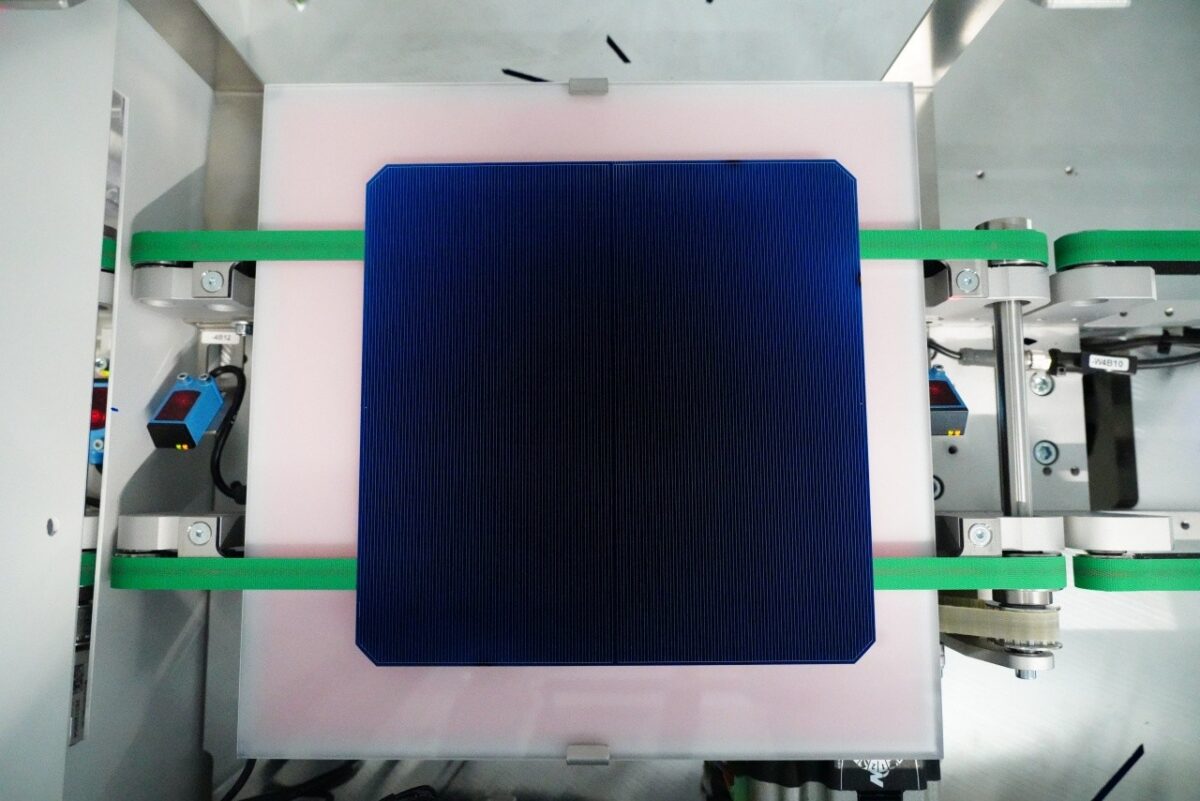Germany’s Fraunhofer Institute for Solar Energy Systems (Fraunhofer ISE) has unveiled today a 120 µm thin solar cell type based on tunnel oxide passivated contact (TOPCon) technology and M10 (182mm) wafers.
The research institute claims to be the first European scientific entity to switch to large-area M10 silicon wafers for TOPCon cells. “We are very excited that we can now support our industrial partners in optimizing their production processes with this large-area wafer format or even in newly entering into the production of such solar cells,” said Fraunhofer ISE researcher Sabrina Lohmüller.
The Fraunhofer ISE presented the new large-format TOPCon solar cell concept to unspecified industry representatives and funding bodies during its recent 20th Photovoltaic Technology Advisory Board Meeting.
It also said the cell was metalized via screen-printed contact fingers and calibrated by scientists at Germany’s Institute for Solar Energy Research Hamelin (ISFH).
“Achieving an efficiency of 24.0% with the first batch suggests that we will exceed 25% with the next optimization steps,” said Ralf Preu PD, director of the Photovoltaics Division at Fraunhofer ISE. “This recent success lays the foundation for our medium-term goal of large-area silicon-based tandem solar cells with an efficiency potential of well over 30%.”
More details about the cell technology and its possible applications in commercial production were not disclosed.
This content is protected by copyright and may not be reused. If you want to cooperate with us and would like to reuse some of our content, please contact: editors@pv-magazine.com.









By submitting this form you agree to pv magazine using your data for the purposes of publishing your comment.
Your personal data will only be disclosed or otherwise transmitted to third parties for the purposes of spam filtering or if this is necessary for technical maintenance of the website. Any other transfer to third parties will not take place unless this is justified on the basis of applicable data protection regulations or if pv magazine is legally obliged to do so.
You may revoke this consent at any time with effect for the future, in which case your personal data will be deleted immediately. Otherwise, your data will be deleted if pv magazine has processed your request or the purpose of data storage is fulfilled.
Further information on data privacy can be found in our Data Protection Policy.